It’s a beautiful time to be changing the world. “What’s that?” you say. “Things are terrible!” And yes, there are shifting geopolitics — Russia’s war on Ukraine, China’s sweeping resumption of claims over almost the entire South China Sea, and North Korea’s antagonism of South Korea, Japan and the United States — all of which raise fears of a new Cold War. During COP27 in November, The Economist went so far as to suggest — incorrectly, in my view — that we should give up on a 1.5-degree goal for mitigation of the climate emergency, citing its impracticality and improbability.
At the same time, roughly 90 percent of the world’s refugees hail from countries that are especially vulnerable to the effects of climate change. That might seem like a faraway problem, but according to the BC Coroners Service over 600 people lost their lives to climate-related heat in British Columbia in 2021, and several others have died during climate-related floods, forest fires and extreme weather events since then. We’re also in the early days of a recession that will impact every household, and those households with the least resources will suffer most. It’s enough to break your heart.
But still, I wake up every morning and think, “It’s a beautiful day to be changing the world.”
The task feels so difficult. When we think of Easter, we think of leaning into hope in the face of the death-dealing forces that culminated in Jesus’ crucifixion and the death of his physical body. We wait through Holy Saturday for the arrival of the Resurrection, and the assurance of hope against hope that death cannot, and does not, triumph over life.
And that’s easy to think about when it’s one body, one voice, one Messiah.
But in reality, our problems and our systems are so intricately interwoven that one misstep can have global consequences. Take, for example, the subprime mortgage crisis of 2008 in the United States, which sparked a global financial meltdown — all from selling risky mortgages as financial instruments to pensions and other large investors. Amartya Sen, an Indian philosopher and the 1998 Nobel laureate in economics, wrote about how our freedoms — and conversely, our “unfreedoms,” like poverty and tyranny — are connected to each other. When we have economic and political freedom, we tend to have freedom in other areas of our life. And the same goes with “unfreedoms.”
We see that reality playing out in today’s context as we grapple with the intersections of individual needs and desires, the climate crisis, public health, public policy and an uncertain economy. It’s messy business, trying to pull at the threads of injustice.
But it’s a beautiful time to be changing the world.
If you think about everything that we knew about the world five, 10 or 15 years ago, who would have predicted the situations we find ourselves in now? I suppose some people could have, but most of us did not expect that so many of our assumptions about the way that the world works would be so significantly disrupted. If we had anticipated it —had we known what was ahead of us — would we have made the same choices?
But no matter what mistakes we have made, no matter what we have failed to see or do, the story of the crucifixion, the uncertainty and waiting of Holy Saturday, and the Resurrection on Easter remind us that life cannot be completely overcome by death. And, ultimately, there is purpose and meaning in the life and ministry of Christ.
In the spirit of that hope, what is the world you would like to create 10 years from now? If you could stretch your imagination in this most unlikely of stories, the Resurrection, and you could achieve any goal, what would it be? What would your life look like? Your family? Your community of faith? What would Canada look like?
For me, the changed world that I would create would be one of deep spirituality, bold discipleship and daring justice. Not just because that’s the new call and vision of The United Church of Canada, but because I think that those words perfectly express our faith. We need all three.
We need deep spirituality, including the strength and integrity to aspire to a higher purpose. Whether that’s through participation in a Taizé music service, centring prayer, meditation or Sunday worship — or even just reading on our own every morning or using a daily prayer and reflection app — attending to our spirits is an important part of what allows us to flourish as humans.
Bold discipleship, for me, is the communal part of faith. There is a wholeness in community. We gather together as fellow travellers on the road, coming to discern what Jesus would call us to do in a given circumstance. Community is the best of who we can become together as humans. We were not made to live alone. We are a messy bunch, but when we commit to caring for one another and the planet, and to spiritual transformation for all, we can move mountains. This is my vision for our bold discipleship together.
We are a messy bunch, but when we commit to caring for one another and the planet, and to spiritual transformation for all, we can move mountains. This is my vision.
Even when I disagree with someone politically, I’m still going to check in on them after a severe weather event or bring them a casserole when their spouse is in the hospital. It’s easy to do that for the people we love most, but we need to be doing it much more for everyone. Instead of writing each other off and refusing to think outside our own boxes, we need to build bridges.
My parents own a beautiful painting by Ukrainian Canadian painter Peter Shostak. Based on a true story, it features a wintry scene with local Indigenous people standing atop a hill overlooking Ukrainian settlers marooned on a sandbar in the Saskatchewan River. They arrived as refugees during Stalin’s rule and had enough money to get to Edmonton, but not to Bonnyville, Alta., so they built a raft. Only then they got stuck. The Cree helped to loosen them, took the women and children by horseback to Bonnyville, and returned for the men with fresh horses.
Shostak had wanted to paint a series of Indigenous-settler encounters in Canada that told the story of inclusion, aid and community that Indigenous peoples had shown across time, especially to the Ukrainian community. The acts of welcome and kindness are, for me, examples of bold discipleship. They bear witness to the story of how we can be better together.
More on Broadview:
- More embodied worship would include people with intellectual disabilities — and benefit us all
- This is what’s missing from land acknowledgments
- How to cope with volunteer burnout at your church
Which brings me to the call to daring justice. In my view, scanning the horizon for a hint of justice has become the trickiest business. Identity-based forms of justice — like racial justice, LGBTQ2S+ justice and gender justice — are often protected by law. Some are protected better than others, and none are protected perfectly in practice.
But when we look at climate justice or economic justice, the through-line becomes harder to see. For example, yes, we should invest in renewable energy. But at what cost to countries in Africa producing solar panels with virtually no safe disposal systems?
And yet, we must keep dreaming about what a just and sustainable world looks like. Let’s dream about a world where those with disabilities don’t have to fight for accessibility because our buildings and our workplaces are already designed with their needs in mind. Let’s dream about a world where faith communities celebrate diverse sexual orientations and gender identities. Let’s dream about a world where profits are never more important than “doing no harm.” Let’s dream about a world where there is energy abundance combined with smarter choices about the energy that we use in the first place. And let’s dream about a world where we only take what we need, trusting that the earth will regenerate itself and that there will always be more.
The story of Easter reveals that God can do so much more than we can even imagine — even overcoming death. With God, our dreams can be much bigger than we can fathom.
So while the challenges of our current world make it seem like we’re only headed for the death-dealing crucifixion of Good Friday, let us remember that we have the power to come together — through deep spirituality, bold discipleship and daring justice — to dream a new heaven and a new earth into being, through the power and grace of Easter.
It’s a beautiful time to be changing the world.
***
Rt. Rev. Carmen Lansdowne is the 44th moderator of The United Church of Canada.
This story first appeared in Broadview’s April/May 2023 issue with the title “A new earth.”

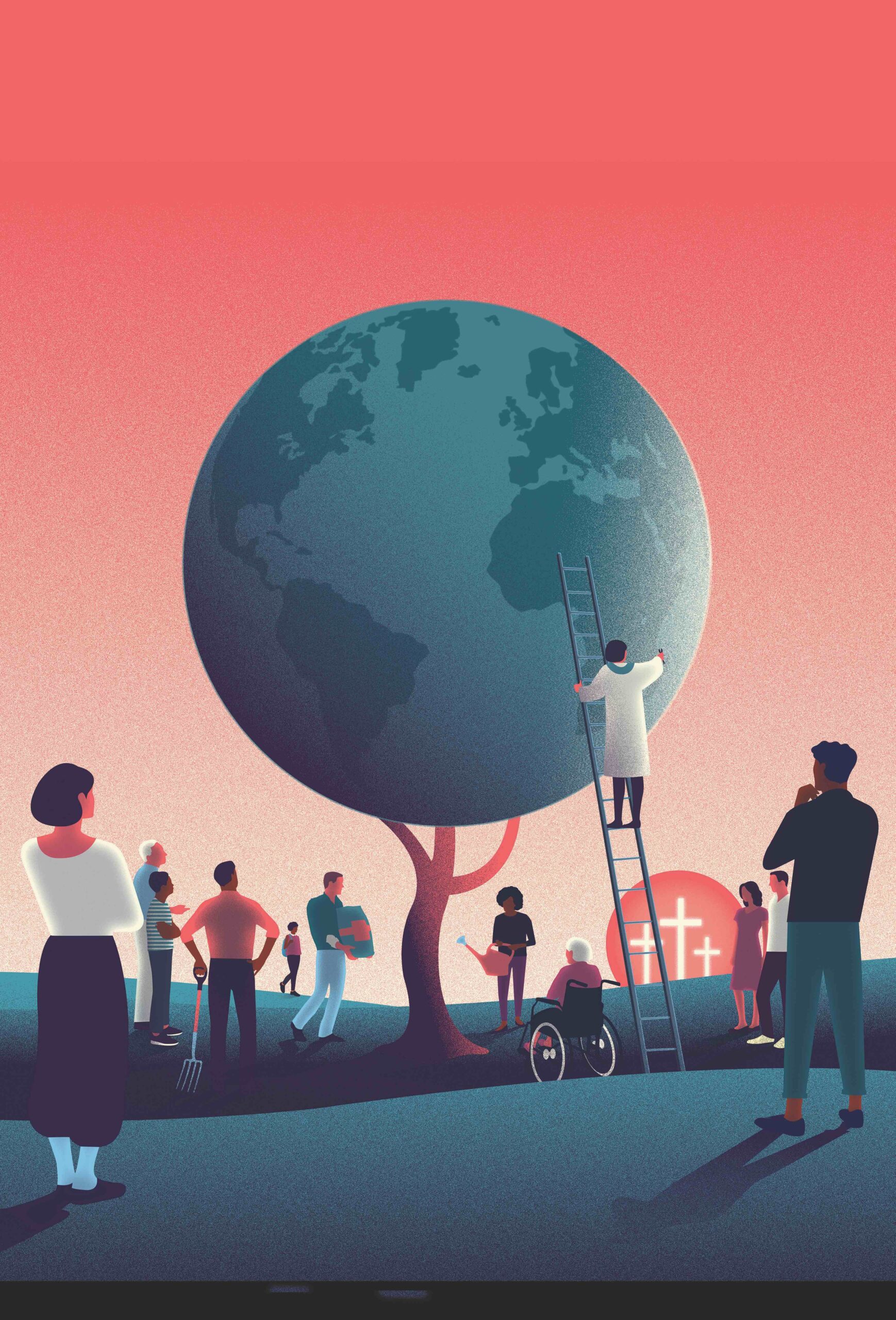








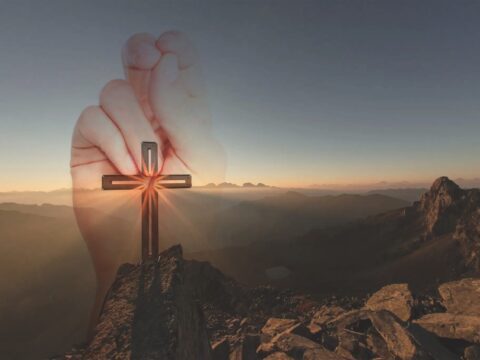

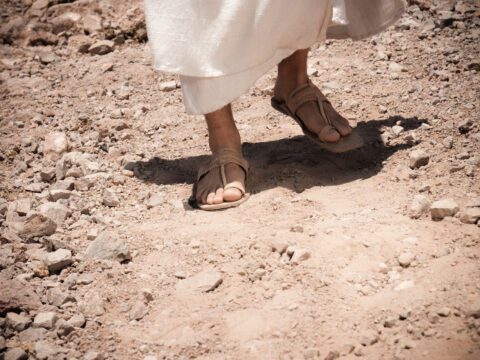
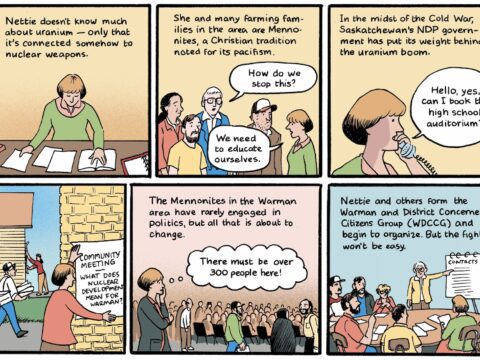
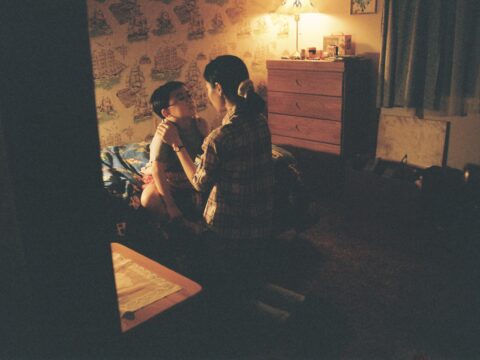

Jesus’s resurrection and life conquering death already changed the world 2,000 years ago. Canada was built on strong backed people who co-operated with each other determined to live, love and laugh, work hard and make opportunities for all children. That continues today as in the past. People from all corners of the world come to Canada to participate in this endeavour. Focus on improving and facilitating children in their daily living and spiritual mental health throughout Canada. Set them up for success so they can live, love and laugh like generations before them.
Without the crucifixion of Friday, the story of Sunday is as meaningless as the resurrection of Julius or Augustus Caesar, or of any other figurehead of antiquity – and there were a lot of those resurrections! As one person said about Easter Sunday, “It should scare you to the core!”
Know God, be faithful, God bless all the people of Canada on turtle island and all over the world, past present and future. In God we trust. Happy Easter.